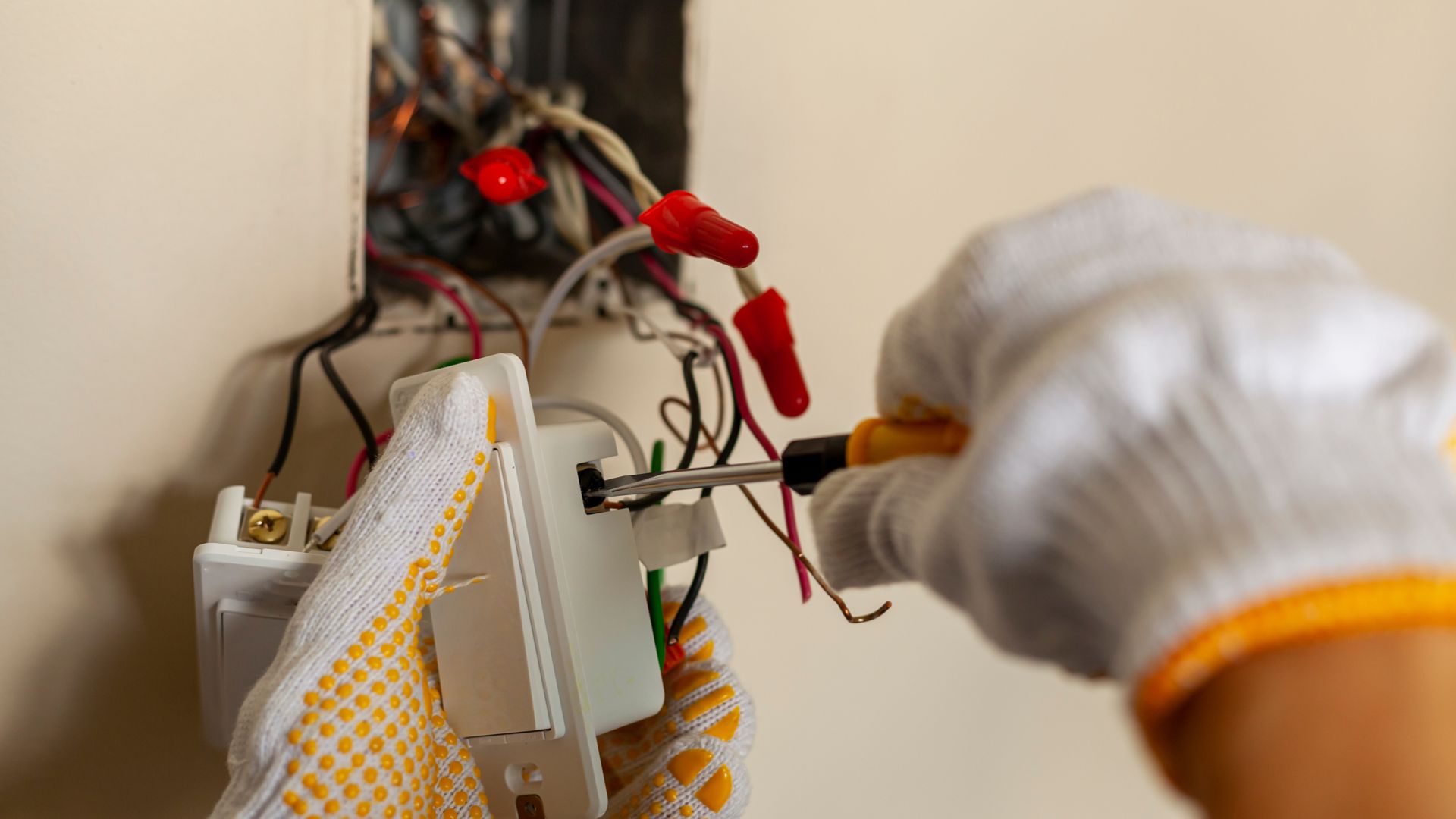The electrical panel, often referred to as the breaker box or fuse box, serves as the heart of your home's electrical system. It's the central hub where incoming electricity from the grid is distributed to the various circuits within your home. Every device, appliance, and light fixture in your home draws power from these circuits, making the electrical panel an essential component of your home's infrastructure. It also serves as a safety mechanism, shutting off power to circuits when they're overloaded to prevent fires and other hazards.
Components of an Electrical Panel
An electrical panel is composed of several key components. The main breaker controls the power supply to the entire house, while individual circuit breakers are responsible for regulating power to specific areas or appliances within your home. When a circuit is overloaded, its breaker will trip, cutting off power to prevent damage or fire. Other components include the bus bars that distribute power from the main breaker to the individual circuits and the neutral and ground bars that provide a safe path for electrical current to return to the ground.
Safety Measures and Precautions for Your Electrical Panel
Recognizing Electrical Panel Hazards
Understanding potential hazards associated with your electrical panel is crucial for maintaining a safe home. Signs of overloaded circuits may include frequently tripped breakers, flickering lights, or outlets that are warm to the touch. Faulty wiring, another common issue, can lead to electrical fires or shocks. If you notice any of these signs, it's important to contact a professional electrician to assess and address the situation.
Essential Safety Tips for Handling Electrical Panels
While some minor electrical tasks can be safely performed by homeowners, interacting with the electrical panel should generally be left to professionals. Never attempt to remove the panel cover, as this exposes live wires and components. If a breaker trips frequently, this could indicate a serious issue that requires professional attention. Always call a professional if you're unsure or uncomfortable with any aspect of your home's electrical system.
Common Issues and Troubleshooting Your Home's Electrical Panel
Identifying Common Electrical Panel Problems
Common issues with electrical panels can range from tripped breakers and flickering lights to more serious problems like constant buzzing sounds or burn marks on the panel. Tripped breakers are often the result of too many appliances drawing power from the same circuit, while flickering lights can indicate a loose connection. Buzzing sounds or burn marks, however, could signal a serious issue that requires immediate attention from a professional electrician.
Basic Troubleshooting Steps for Electrical Panel Issues
For simple issues like a tripped breaker, the solution may be as easy as turning off the affected appliances and resetting the breaker. However, if the same breaker continues to trip, it's time to call a professional. Similarly, if you notice flickering lights, try tightening the light bulb or replacing it. If the problem persists, it could indicate a loose connection or other issue within the circuit that a professional should address.
Upgrading and Maintaining Your Home's Electrical Panel
When and Why to Upgrade Your Electrical Panel
There are several reasons you might consider upgrading your electrical panel. If your home is older and still has a fuse box instead of a breaker panel, an upgrade can improve safety and efficiency. Additionally, if you're planning a major home renovation or adding large appliances, your current panel may not be able to handle the increased electrical load. In these cases, an upgrade by a professional electrician can ensure your home's electrical system is safe and capable of meeting your needs.
Steps in the Electrical Panel Upgrade Process
Upgrading an electrical panel is a complex process that should always be performed by a licensed electrician. The process typically involves removing the old panel, installing a new one, and transferring the circuits. The electrician will also test the system to ensure everything is working properly. This process can take several hours to a full day, depending on the complexity of the job.
Navigating Electrical Panel Regulations and Requirements
Understanding Electrical Code Requirements for Home Panels
Electrical panels and the work performed on them are subject to national and local electrical codes. These codes, which are updated regularly, set standards for safety and efficiency. They cover everything from the type of panel that can be used to the way wires are connected within the panel. It's important to hire a knowledgeable, licensed electrician who is familiar with these codes to ensure your panel is up to standard.
The Role of Inspections in Electrical Panel Safety
Inspections play a crucial role in maintaining the safety and efficiency of your home's electrical system. A professional electrician, can perform regular inspections to identify and address potential issues before they become serious problems. These inspections are also often required as part of the permit process when performing major electrical work, such as an upgrade.
Understanding your home's electrical panel is key to maintaining a safe and efficient home. If you're in need of professional electrical services in Washington, UT, don't hesitate to contact High Tech Electric. Our team of experienced electricians is ready to help solve your electrical problems, from troubleshooting and repairs to upgrades and inspections.
Contact us online or call (435) 466-7144 to learn more about our services and how we can help keep your home's electrical system in top shape.

